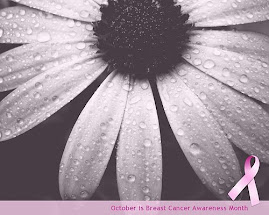After sifting through all of my research, observations and, previous explorations I came up with a few thought provoking questions. For the most part, I decided to stay in the same vein with breast cancer, but reach outside of the survivors and go into the actual disease.
Question #1) Mammograms (other types of screening) for women under 40?
So first of all, what about the women who have a family history but mammograms aren’t recommended until age 40? What about the woman who doesn’t have a family history and she is the FIRST one to get breast cancer, but by the time she had her first mammo, the cancer is already spreading? It seems as though a blanket age for the first mammo should be lowered. Why not get a baseline of your breast tissue? Then if something does develop, you will be able to see what your “healthy” breasts looked like on x-ray! I feel like this question has a few varying answers but ultimately each doctor has his/her own opinion about the age to start mammograms. Also, the library research probably wouldn’t be terribly solid. I would probably find a lot of varying opinions and different “schools of thought” on this one. I think this topic would be extremely interesting to see if there are other guidelines in the works, if a patient does have a strong family history. I would also be curious to see what the ranging opinions are and why doctors and radiologists have those opinions.
Question #2) Lumpectomy or complete mastectomy?
This might sound really strange but I have often thought about this question. If I found out tomorrow that I had breast cancer and was given the option to have the lump removed or have my entire breast removed—what would I do??? Of course there would be instances, because of the advanced stage of cancer, where the doctor would recommend a double mastectomy. My question would be- what if that isn’t the case, and you had to decide whether or not to be conservative or radical? Do you have a breast removed for peace of mind or do you only remove what is cancerous? If you decide to have a lumpectomy and the cancer comes back again, do you beat yourself up over not removing it on the earlier occasion? For the most part, this is a personal choice.
My great aunts, Marla & Karla (who are twins) were both diagnosed with the exact same type of breast cancer, three weeks apart from one and another! Karla decided she would only have a lumpectomy, so she could return to work sooner. On the other hand Marla decided on a double mastectomy. They both recovered and are now cancer free but it just shows how different a treatment path can be. Although this issue would yield discussion, I feel so much of it would be based completely on opinion. I would definitely be able to compare and contrast with women who have chosen different treatment options. I’m sure I could also find library research to back up both sides but I’m not sure how deep I would be able to go with it. Sure, I could argue one side against the other, but the decision ultimately lies with the woman facing surgery.
Question #3) BRCA 1 & 2- Genetic Testing
Honestly, this topic intrigues me beyond belief! I have personally been researching this topic for almost two years and I am continually discovering new and fascinating information. I am so interested by the many facets this controversy/ issue has to offer. If either the BRCA 1 & 2 genes are found in women, this means they are predisposed to developing breast cancer in their lifetime. If a patient has the BRCA 2 gene, the chance that she will develop breast or ovarian cancer goes up to 85%! What makes me so interested in this is—what do you do with that information? Some women who are testing positive for this particular gene mutation are having prophylactic double mastectomy before they show any sign of cancer. This is highly controversial and rightfully so. I know that I can find many academic sources and can even get a personal interview with a woman who has the BRCA 1 & 2 gene mutation. It has also been in the news, with Christina Applegate, recently having a prophylactic double mastectomy after her BRCA genetic testing. This topic reaches far and wide on a personal level and on a scientific level. There is also the debate about if the genetic testing is ethical, because some Christians believe that a woman shouldn’t alter “God’s plan”. This topic is extremely intriguing and I feel as though since it is relatively new, I will be able to write a good, informative paper.


No comments:
Post a Comment